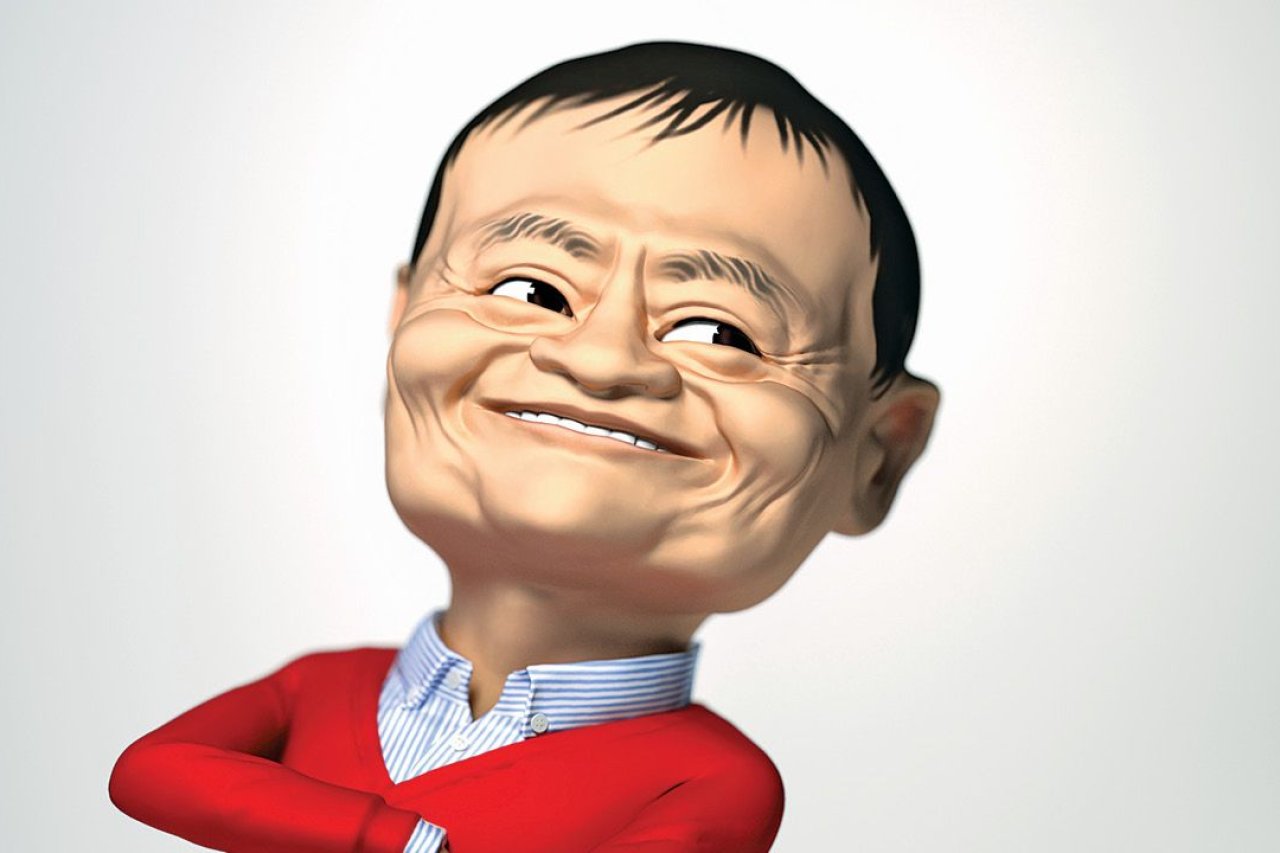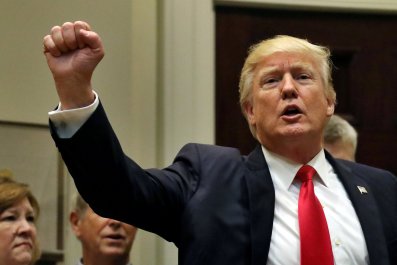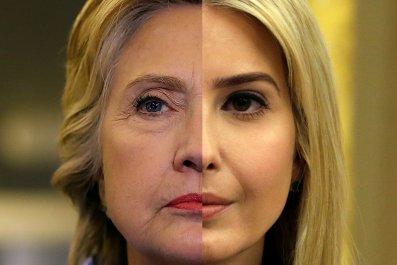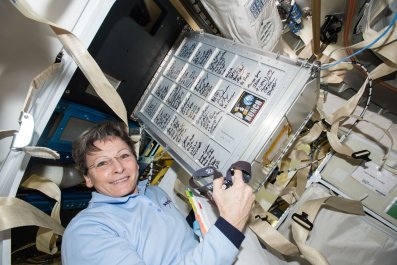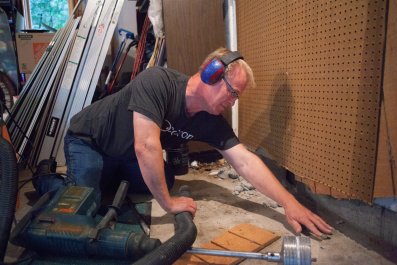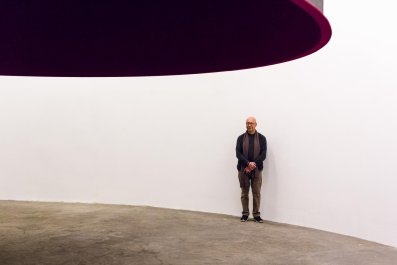In the aftermath of the recent U.S. election, as notables from near and far (and really far) made their pilgrimages to Trump Tower hoping to figure out what this most unexpected presidency might look like, these two made the oddest of couples: the tall, elaborately coiffed president-elect and the elfin CEO of the most famous company in China, a country candidate Donald Trump had repeatedly excoriated on the campaign trail as a trade villain.
In the extraordinary life of Ma Yun, known to most people in the West as Jack Ma, this meet and greet on steroids was yet another of many extraordinary moments. Ma, the founder and executive chairman of the Alibaba Group, had come to Manhattan to tell Trump he wanted to help American entrepreneurs sell their goods directly into China—using, of course, his e-commerce site to connect buyers to sellers. As Ma was speaking to the assembled press, Trump at one point leaned into the microphone and chirped, "He loves this country."
A few seconds later, Trump realized he might have erred. Proclaiming to the world that the most globally visible businessman in a country run by an authoritarian regime that is, at best, a strategic rival of Washington's "loves" the United States might not be good for Ma back home. So Trump, towering over his tiny counterpart, awkwardly interjected, "He loves China too," as Ma grinned but said nothing.
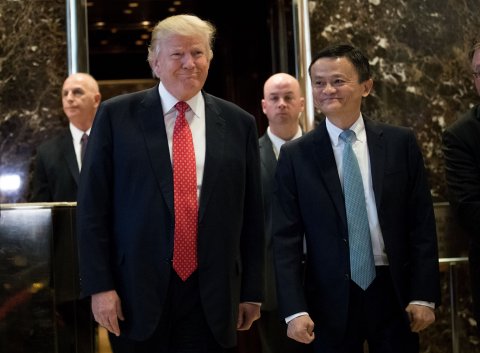
That the two men hit it off that day—and friends of each say they did—is not surprising. Ma, like Trump, is brash and blunt, particularly by the standards set for Chinese businessmen, most of whom avoid attention the way Trump avoids strong winds. Not Ma. "He's an alien,'' his friend and fellow billionaire Guo Guangchang, founder of the Shanghai conglomerate the Fosun Group, once said. "He's so out there." Every year, for example, Ma hosts an annual meeting of "Aliren" (Alibaba people) from all over the world at the company's headquarters in Hangzhou, about 100 miles south of Shanghai. Employees and customers alike come to hear Ma evangelize for the brand. And evangelize he does, making impassioned speeches about what the company has accomplished each year, as well as what it has failed to do. He invites celebrities and politicians and businesspeople. Arnold Schwarzenegger came while he was governor of California. I've seen Ma ably translate a Q&A session with then–U.S. Ambassador to China Jon Huntsman, and I've seen him share that stage with the CEO of eBay, a company he gleefully drove out of China when Meg Whitman (now running Hewlett-Packard) was in charge.
Read more: How China can win as America turns inward
I first got to know Ma while he was in the process of outwitting Whitman in the early 2000s. He sat in his office and, proudly on the record, told story after story of how he thought eBay—then his primary competitor in China—was screwing up. He told me Whitman was making secret visits to the country and spending weeks with her China team, trying to get their strategy right. He even told me where she was staying while there (the private residence wing of the J.W. Marriott in Shanghai). He cackled repeatedly during our conversation, mocking his rival and her company. He was so open that I had a hard time believing I was interviewing a Chinese CEO. After I left his office, I called the Marriott where Ma had said Whitman was holed up. He was right.
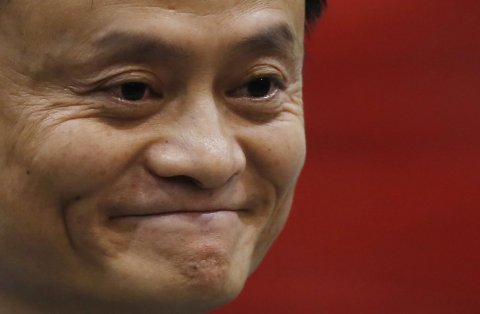
Ma is not boastful the way Trump has always been, but he is ferociously ambitious for himself and his company—in a way that some analysts believe is risky for Alibaba. Next month, under the guise of helping "level the playing field" (Ma's words) between the U.S. and China on trade, he will move to expand Alibaba's presence in the U.S. He will visit Detroit for a two-day Alibaba-produced event called Gateway 17. Its purpose will be to demonstrate how American businesses can utilize the virtual shopping mall that is Alibaba to sell into China. It will do so, in part, by introducing some American entrepreneurs who have already done just that. Ma talks enthusiastically about a third-generation cherry farmer from Washington who has already sold "tons" of cherries in China using Alibaba's platform, and a family-owned drugstore in Philadelphia, Lucky Vitamin, that now sells thousands of products there.
Ma's pitch is straightforward: China is open for business, and his platforms enable you to deal directly with consumers—no middlemen, no government agencies hampering your ability to compete. And though China's economy is slowing, retail there is booming. Last year, Ma says, China surpassed the U.S. as a retail market, with spending nearing $5 trillion. By next year, China's online spending will be greater than that of the rest of the world combined. Ma's message to American small-business owners in Detroit will be essentially the same: China has 1.3 billion potential customers, so use Alibaba to find them.
Does Ma actually think his platform can make a dent in the massive bilateral trade deficit? No, "but we certainly can be a positive force in that direction." That's the message that beguiled Trump, who is no longer vilifying China, though Beijing's help dealing with North Korea probably has more to do with that than Ma's charm.
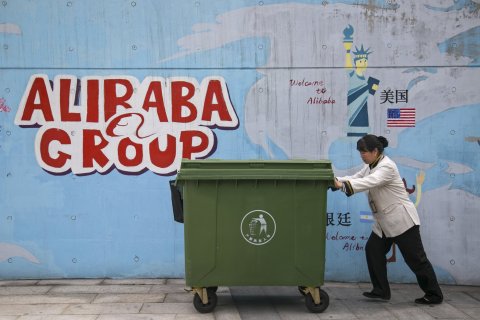
The Explosive Shrimp Cocktail
It is not an exaggeration to say that Ma is the person most responsible for the astonishing growth of e-commerce in his home country. Like the mythologizing of the late Steve Jobs in his garage creating the first Apple computer (it is Jobs to whom Ma is most often compared, and rightly so), Ma's entrepreneurial story is the most famous one in modern China. He had started two companies that failed, then spent a miserable two years working as a bureaucrat in one of Beijing's economic ministries, before returning to his hometown of Hangzhou. There, in February 1999, he gathered several friends in his apartment to tell them about his vision for a new venture, Alibaba. Duncan Clark, a friend and consultant to Alibaba for many years (he also wrote the recent book The House That Jack Built ), says Ma, despite his two failures, had supreme confidence in his idea for an e-commerce platform—so much so, in fact, that he had the gathering filmed for posterity.
Ma's favorite movie back then was Forrest Gump , and he often points to the scene in which Gump makes a fortune hauling in shrimp after a big storm. In the early days of e-commerce in America, he told his assembled friends, most of the big companies were "B2B" (business to business) sites. "American B2B sites are whales," said Ma, "but 85 percent of the fish in the sea are shrimp-sized. I don't know anyone who makes money from whales, but I've seen many making money [hauling in] shrimp." And with that, at a time when China had only 2 million internet users (it has 730 million today), the idea of individuals and small businesses selling to each other was born.
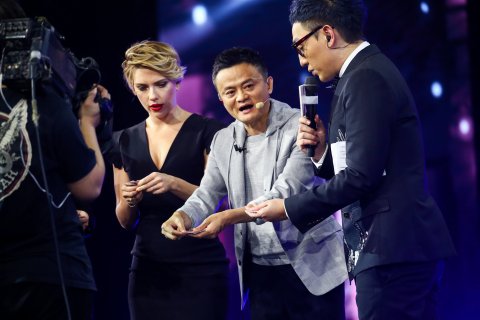
Empty Caveat Emptor
As beguiling as Ma's message to American entrepreneurs next month might be, doing business on Alibaba's platform can bring problems. American businesses have complained for years about the rampant theft of intellectual property in China, and this issue plagues Ma and Alibaba. So prevalent are knockoffs in China—a purse that sort of looks like a Louis Vuitton, a fake Hermès scarf—that Alibaba's main platform there (Taobao) has been flooded by them. Even the central government has been scathing in its criticism of the company for failing to crack down on fakes sold on its site.
Some U.S. businesspeople have encountered related problems with Alibaba. After Ma met with Trump in January, Indiana artist Michel Keck cautioned fellow small-business owners to be wary. Even though she's never tried to sell anything on Alibaba, she says, copies of her popular collages have popped up on the site for 3 percent of the price she lists. "Why would anyone want to put their original creations, their entire livelihoods, into the same arena where counterfeiters are ready to steal any original concept or idea?" she asks.
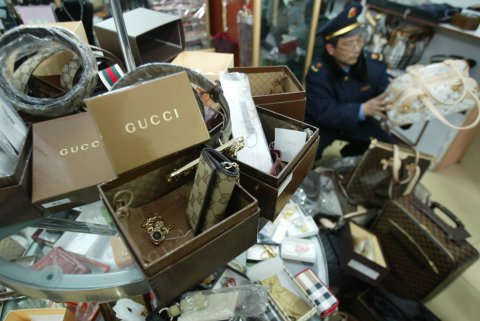
Alibaba executives insist the company is "far more effective and advanced," as a spokesperson puts it, in ferreting out knockoffs than it was just a few years ago. In 2016, the company closed down 380 million product listings thought to be infringing intellectual property rights and shut down 180,000 stores on Taobao. (Individuals or companies set up "virtual stores" to peddle their wares.)
Last December, the U.S. government stung Alibaba by placing the company back on a list of "notorious marketplaces" for fake products. One Alibaba executive, who did not want to be quoted by name, tells me, "Look, we have made progress regarding knockoffs, but are there still issues there? Yes." So, in this case, buyers and sellers beware.
Mr. Inside
Ma's public persona and the savvy way he polishes it—think of the make-nice photo op with Trump, followed up by an event like Gateway 17—have made him the face of Chinese business globally, and an appealing face it is. But his rise in China, a much more tightly regulated economic system than the U.S., has also shown that he knows how to quietly work the system to his benefit, as well as how to be ruthless. One of his more audacious—and controversial—moves demonstrates this.
At a time when Yahoo and Softbank still owned a chunk of Alibaba, Ma quietly moved the electronic payment system known as Alipay out of Alibaba and into a company he owned 80 percent of, called Alibaba E-Commerce Co. Ltd. Alipay was first used simply for payments on the Taobao platform and was critical to the company's success, processing $700 million in transactions a day back then. (Analysts valued the Alipay piece of the business at $1 billion.) In 2011, the government was preparing to issue China's first licenses for electronic payments at the retail level (think Apple Pay). When the People's Bank of China (PBOC) issued license number 001, it went to Alipay and Ma.
He justified a shady move that many investors howled about by explaining that PBOC had issued a regulation saying nonfinancial companies entering the payment services business had to be wholly domestically owned. So he had to move the asset out from under Alibaba because of the foreign ownership stakes in it.
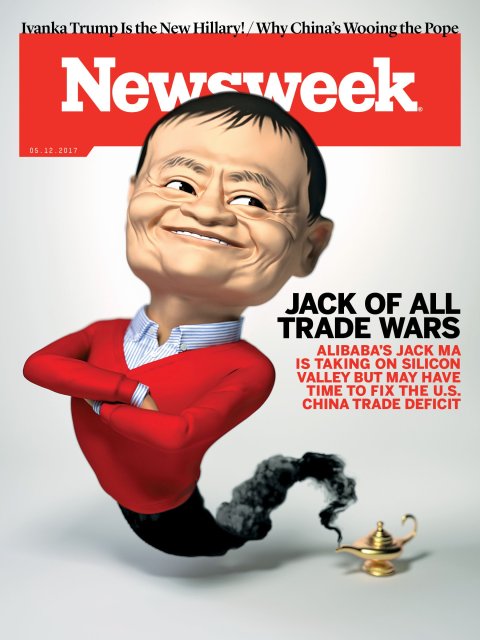
Whatever the reason—or self-serving justification—for taking full control of Alipay, it was a financial bonanza for Ma, and yet another demonstration of how much pull he has in China. Clark recalls that when a fuming Yahoo founder Jerry Yang went to the PBOC for a meeting to try to figure out what had happened, the PBOC official told him the matter was "out of our hands." It turned out that the PBOC required a longer and more complicated application process for companies with foreign stakes to get into the payment services business but didn't completely preclude it. No matter. Ma had moved quickly and quietly, and he got a license worth billions.
Alipay is now the top electronic payments service in the country. How do you say chutzpah in Chinese?
You Don't Know Jack
Alibaba has so far defied the expectations of most analysts that its core business, e-commerce, would begin to slow down. In January, it announced that it expects its e-commerce sales to rise 53 percent in 2017, up from a forecast of 48 percent. The company's most recent earnings beat Wall Street's expectations, up 38 percent to $2.57 billion. The stock price is up more than 40 percent year on year.
All of which raises an obvious question: Why has Ma sent the Alibaba Group into so many different businesses in so many different locales? Its purchase of the Southeast Asia e-commerce site Lazada last year makes some strategic sense, but does the acquisition of Youku Tudou, China's version of YouTube? That business loses money, and analysts don't see that changing anytime soon. Ma brushes those haters aside, says he loves the business, sees ways to link it with his e-commerce and believes it will be profitable "soon."
Ma has also bet big on cloud computing, going against powerhouses in the business such as Microsoft and Amazon. One friend believes the latter is the key to Alibaba's move into the space, because "Jack wants to match Bezos. He wants to show he can not only match him but one-up him." (Ma bought a newspaper, Hong Kong's South China Morning Post , after Amazon CEO Jeff Bezos purchased The Washington Post .) But several Wall Street analysts aren't over the moon about the cloud investment because Alibaba recently cut prices in a play for market share, cutting profits in the process.
Alipay, which has been renamed Ant Financial, is now in a bidding war for Dallas-based MoneyGram International, the second-largest money transfer company in the world behind Western Union. Ma has also expanded Alibaba's stake in one of India's largest e-commerce companies, which it now effectively controls. That means Ma will go against Bezos and Amazon in the world's second most populous country.
Jack has also gone Hollywood. After investing in a few films—Paramount's Star Trek Beyond , for example—Alibaba Pictures Group, his entertainment unit, bought an undisclosed stake in Amblin, the production company owned by director Steven Spielberg. The partnership's goal, Ma says, is to make films that will be popular both in China and abroad. Yu Yongfu, the 40-year-old Ma appointed as head of the Alibaba Digital Media and Entertainment Group, which includes Alibaba Pictures, pledged to invest $7.2 billion in film production over the next three years.
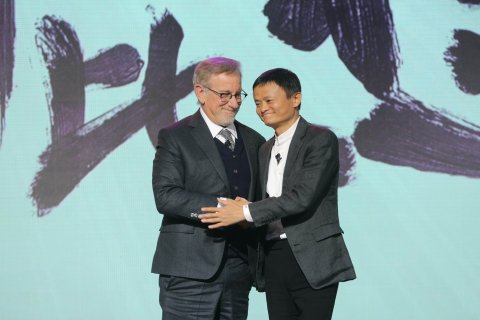
Does that investment make sense, or is Ma starstruck? He dismisses the idea. "It makes complete sense to help produce films for our market and for the world," he says, even if it's not clear what expertise or knowledge Alibaba brings to the film business.
Analysts say questions about whether Ma might lose focus at the company are legitimate. "They definitely have a lot of balls in the air," says consultant Clark. Ma, for his part, says he sets broad strategic priorities and then lets his executives run their business as they see fit. "How is it different from General Electric or Microsoft?" he asked last year, "We're not losing focus at all. We're a global company with a lot of investments in a lot of places. That hardly makes us unique."
The original idea that Ma pitched to his pals in his apartment in 1999 has made him China's richest man, a hugely powerful figure in his country and someone who now is able to hobnob with Hollywood royalty—Spielberg and Tom Cruise—or the last two presidents, Trump and Barack Obama. Ma is where he is because he conquered his home market, where global rival Amazon is but a small player. Ma likes to say in speeches that "China changed because of us in the last 15 years."
Now his vision goes far beyond China's borders. "We hope in the next 15 years the world changes because of us," he says. Taking on the elite of Silicon Valley is Ma's next audacious act. Back in 1999, he told his co-conspirators (several of whom invested in the original company), "Our competitors will not be in China but in Silicon Valley."
He was certainly right about that. Ma and Alibaba effectively created the e-commerce industry in China from dirt and a dream, and he grabbed a massive "first mover" advantage, as the business consultants say, on his home turf—one it has not relinquished. Now he confronts a different landscape. As he turns his eyes abroad, everyone knows—in e-commerce, in the cloud, in automatic payments and in Hollywood—that Ma is coming. What he has created is extraordinary, but his second act promises to be even more difficult than his first.


